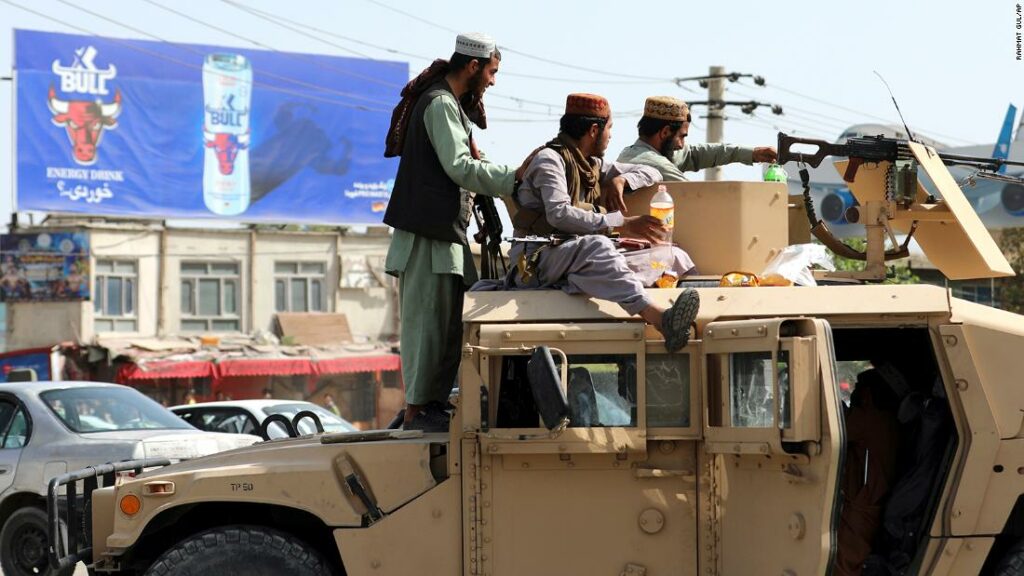How social media is dealing with the Taliban takeover

On Tuesday, Facebook (FB) reiterated its ban on accounts praising, supporting, or representing the Taliban from its platforms, including WhatsApp and Instagram, and said that it would remove “accounts maintained by or on behalf of the Taliban.””The Taliban is sanctioned as a terrorist organization under US law and we have banned them from our services under our Dangerous Organization policies,” a company spokesperson said.Facebook designates “dangerous organizations” into three tiers, with the first one being subjected to “the most extensive enforcement.” Entities in tier 1 include terrorist, hate, and criminal organizations.While the Taliban have been banned from Facebook’s platforms for “years,” the company did not reveal when exactly the restrictions were placed. The company said it employs a “dedicated team of Afghanistan experts, who are native Dari and Pashto speakers and have knowledge of local context” tasked with identifying “emerging issues.” “Regardless of who holds power, we will take the appropriate action against accounts and content that breaks our rules,” Facebook stated.On Sunday, Taliban militants retook Afghanistan’s capital, almost two decades after they were driven from Kabul by US troops. Since then, scores of civilians have been trying to flee the country, with chaotic scenes unfolding at Kabul’s Hamid Karzai international airport on Monday.The Taliban have not been officially designated as a Foreign Terrorist Organization by the United States. However, the group was placed on a US Treasury Department list of Specially Designated Global Terrorists and a Specially Designated Nationals list.The ban also applies to Facebook-owned Instagram and WhatsApp, which trawls non-encrypted content — such as names, profile photos, and group descriptions — to identify the Taliban and supporters. A WhatsApp spokesperson did not comment on what happens to Taliban-related content which, like all messages on the platform, is encrypted by default on its messaging app. While there were practically no computers in the country in 2001 when the Taliban were driven from power, Afghans have slowly become used to the digital age over the last 20 years. As the government crumbled over the weekend, there were posts on social media — by citizens and politicians — documenting the chaos.And there is fear that Afghanistan will be sent back to a “dark age” of Taliban domination. Their return to power is a terrifying prospect for women. When last they ruled, females were forbidden to attend school. They were shrouded in burqas, condemned to life at home and seen as male possessions. This time, the Taliban are promising to form an “Afghan inclusive Islamic government,” and allow girls to study. But it’s not yet clear if the new leadership will include women and there’s deep mistrust of militants who caused such misery last time they ruled Afghanistan. Meanwhile, other big social media platforms were less clear about their strategy to deal with content supporting the Taliban. A Twitter spokesperson said that people in Afghanistan are using the platform to seek help, and the company promised to “remain vigilant” in enforcing its policies, including those that ban content that glorifies violence.One of the Taliban’s spokesmen, Suhail Shaheen, has an active, unverified account on Twitter with 347,000 followers.YouTube said Tuesday it will “terminate” accounts run by the Afghan Taliban, clarifying its earlier remarks that suggested the group is not banned from the video platform. Following repeated questions by CNN, YouTube said in a statement that the company “complies with all applicable sanctions and trade compliance laws, including relevant U.S. sanctions. As such, if we find an account believed to be owned and operated by the Afghan Taliban, we terminate it. Further, our policies prohibit content that incites violence.”YouTube told CNN that because the Afghan Taliban appears on the Treasury Department’s sanctions list, the platform will not allow accounts controlled by the group. It had previously told CNN that it looks to the State Department’s list of foreign terrorist organizations to inform its enforcement policy, but the Afghan Taliban is not named on that list.Brian Fung contributed to this report.







